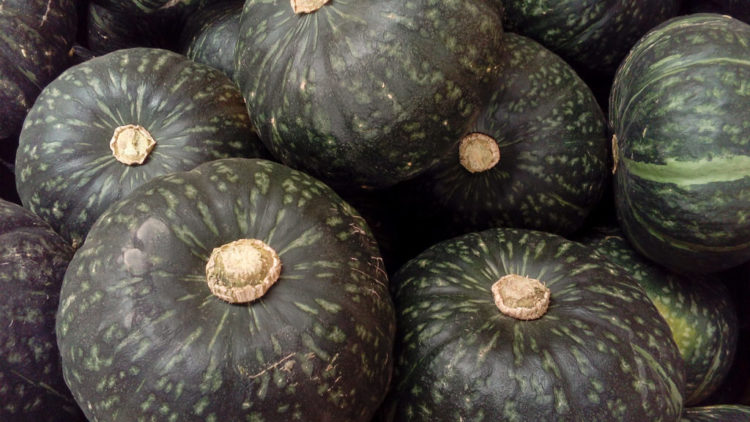Kabocha squash have a pretty amazing story to share with you…
As you may know, all edible squash (summer squash, winter squash, pumpkins, etc) were originally domesticated from their wild relatives by Native Americans. Depending on the exact genus, archaeologists have traced modern squash’s origins to southwestern Mexico, the eastern US, and northern regions of South America.
How old are domesticated squash? The earliest known date of cultivation yet discovered is from a site in southwestern Mexico dating back at least 9,000 years. That’s old!
When the first Europeans arrived, they were dazzled by the novel foods growing on this side of the world. Corn (maize), beans, squash, pineapples, and other edible plants were soon exported back to Europe where they soon became garden and farm staples.
As the seeds spread from country to country and village to village, new varieties were bred. These new varieties weren’t just acclimated to the local climate region, they were also bred to fit local culinary traditions, cuisines, and taste preferences.
Kabocha Introduced to Japan
In the mid-1500s, Portuguese sailors brought a green pumpkin with intensely sweet orange flesh with them to Japan.
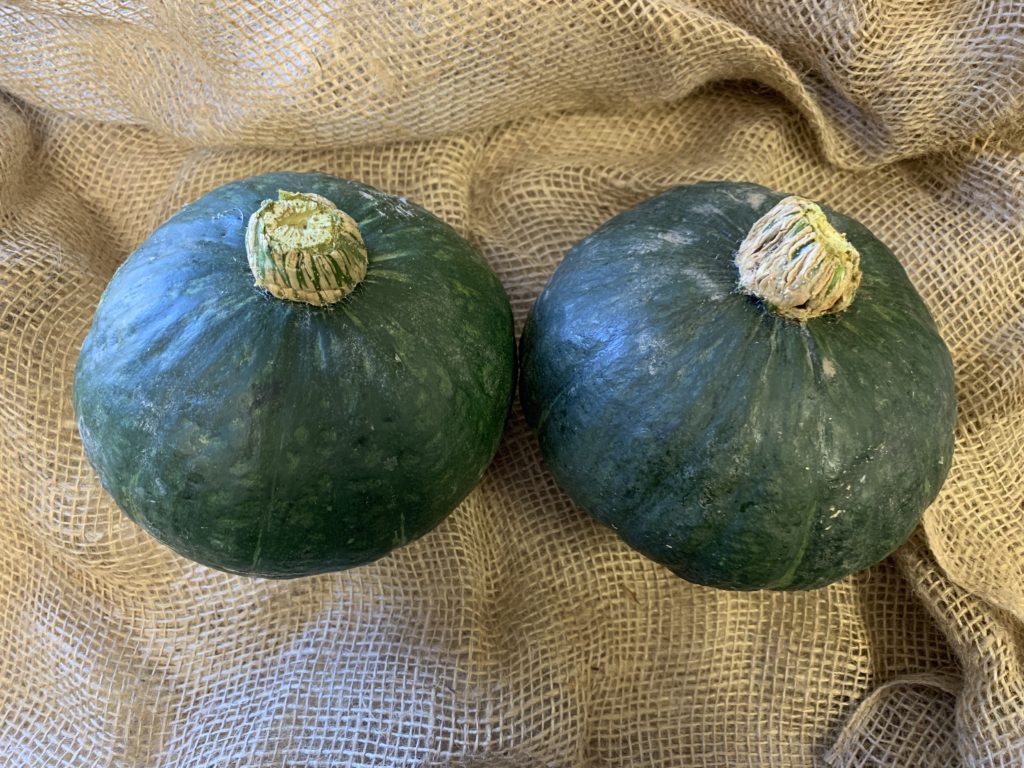
Organic Kabocha squash from Be Wise ranch, included in a recent Daily Harvest Express FarmBox.
The squash was called “kabocha,” a mashup of the Portuguese and Cambodian languages. Kabocha squash’s popularity soon soared in Japan. From then on, kabocha squash have been used in Japanese soups, desserts, tempura, and other recipes.
Different varieties of kabocha have been bred across Japan, but all offered the same basic look and flavor: small 2-5 pound fruits with green skin offering intensely sweet flesh with notes of sweet potato.
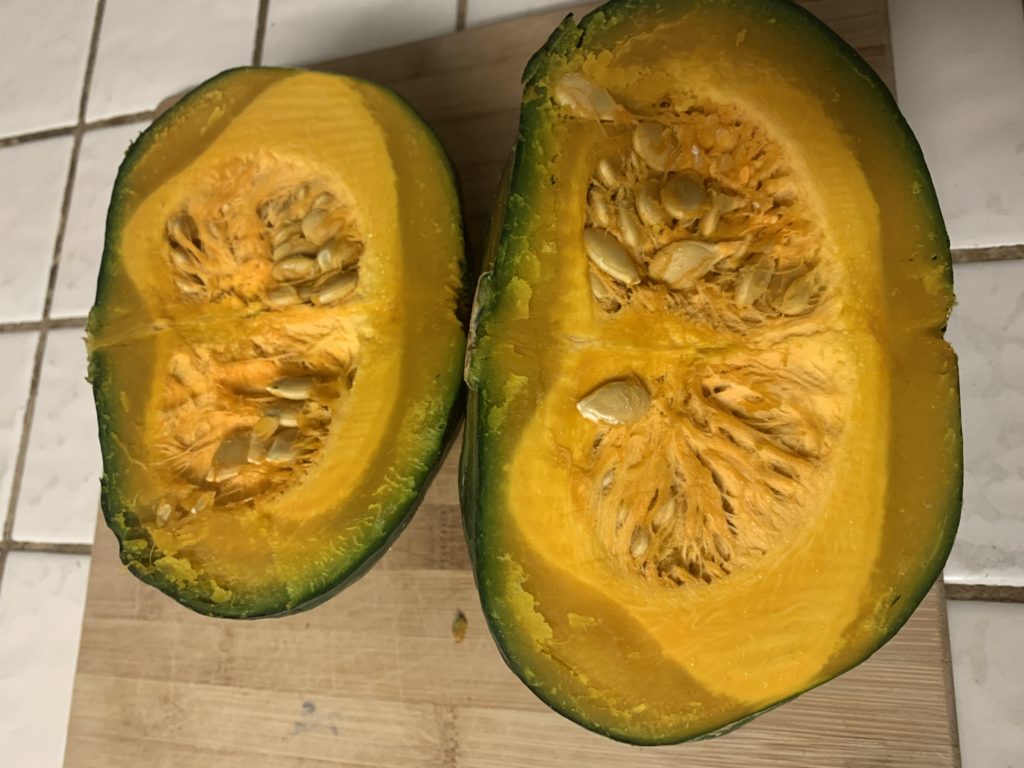
Kabocha squash cut in half. The seeds are also edible! (See recipes below.)
How to Cook and Eat Kabocha Squash
Kabocha squash are botanically categorized under the same species name as pumpkins, Cucurbita maxima.
Most pumpkins you’ll eat aren’t very sweet-flavored. That’s why lots of added sugar is usually called for in pumpkin pie and pudding recipes.
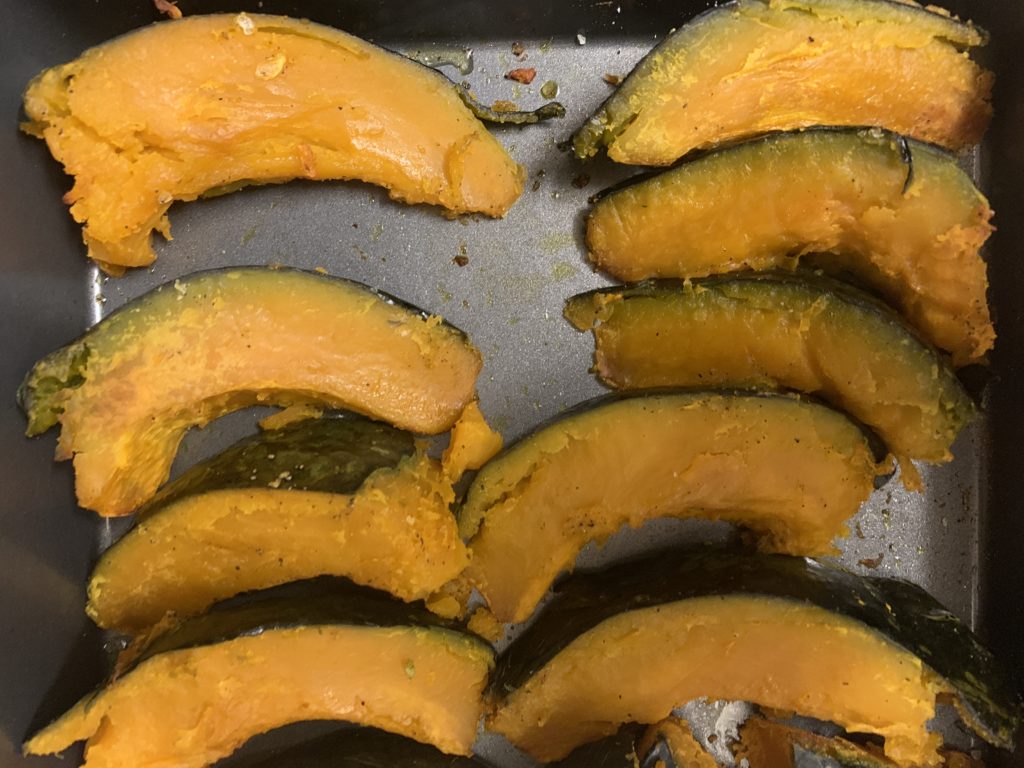
Sonya at Daily Harvest enjoyed slicing and roasting her kabocha squash.
One of the amazing things about kabocha squash is they’re naturally sweet. When making desserts with kabochas, you can either reduce or eliminate the extra sugar, making for a much healthier dessert that still tastes delicious.
Kabochas are also amazing in savory recipes: soups, stews, roasted, tempura, and more.
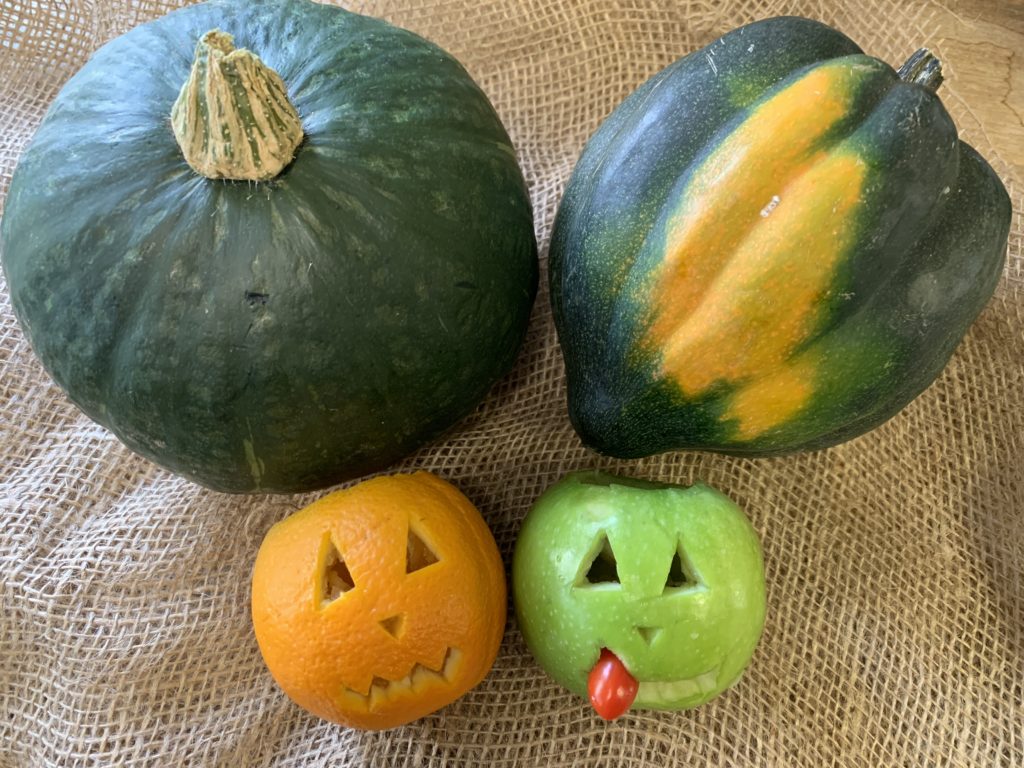
Scary! Orange and apple jack-o-lanterns made these poor kabocha squash so scared that one of them toppled over with fright.
Kabocha squash recipes
If you’re trying to figure out what to do with those gorgeous certified organic kabocha squash from Be Wise Ranch that showed up in your recent Daily Harvest Express FarmBox, here are five great recipes plus a bonus roasted seed recipe:
- Roasted kabocha squash (this one is sooo easy!)
- Kabocha squash soup
- Kabocha squash pie
- Kabocha squash pudding
- Kabocha squash scallion tempura
As mentioned above, kabocha seeds (like other pumpkins) also have edible seeds. Here’s a simple recipe for roasted kabocha squash seeds.
Enjoy!
Order Now!
Get your Daily Harvest Express order placed right now (or no later than Sunday evening at 5 pm) so you can enjoy another week of fresh, healthy organic food from local farmers!
If you’re an existing customer, check out the What’s In My Box page to see what’s headed your way or to customize your order. If you’re a new customer, learn more about which service is best for you by clicking the button below:
Order Now
Want to get more articles like this?
Subscribe to our weekly newsletter to get more local food & farming news from Daily Harvest Express!

